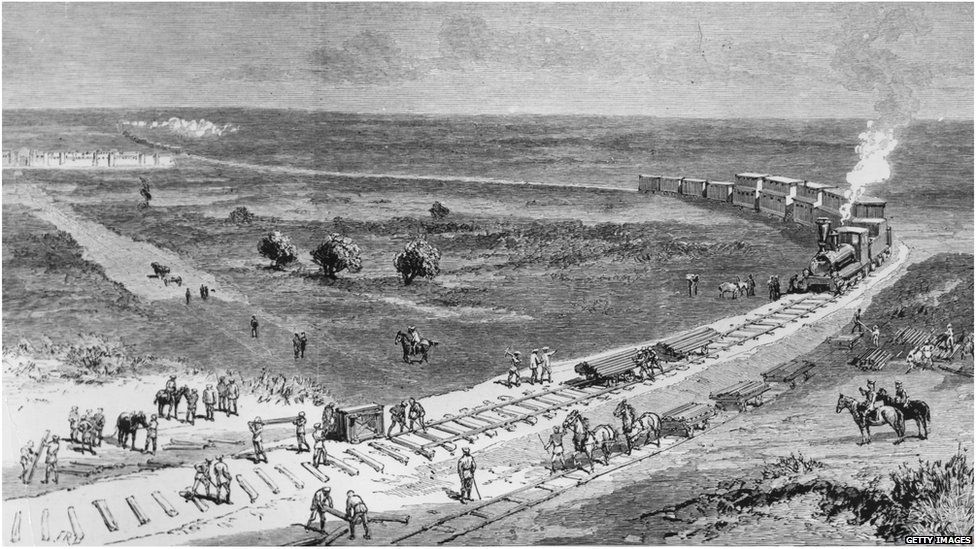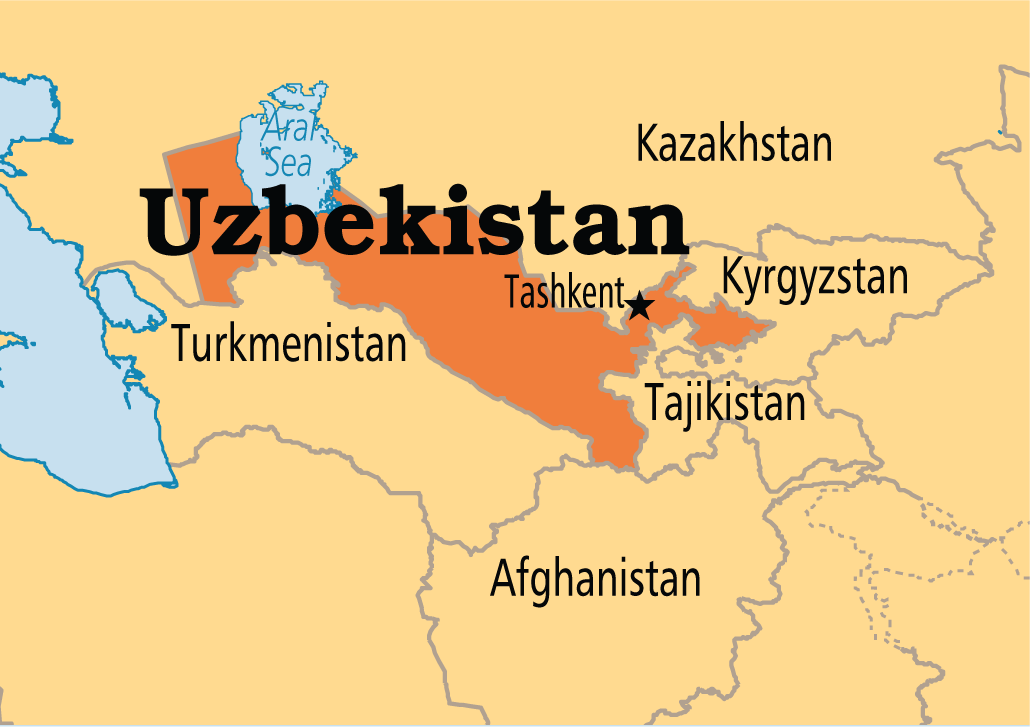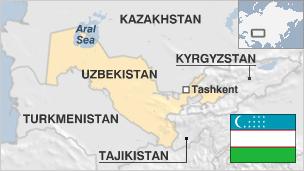
The land that is now Uzbekistan was once at the heart of the ancient Silk Road trade route connecting China with the Middle East and Rome.
The country came under Russian control in the 19th century, and emerged as an independent state when Soviet rule ended in 1991.
Under authoritarian President Islam Karimov, who ruled from 1989 until his death in 2016, Uzbekistan was reliant on exports of cotton, gas and gold to maintain its rigid, state-controlled economy.
His successor, Shavkat Mirziyoyev, has made efforts to break Uzbekistan out of its international isolation and economic stagnation, but has yet to initiate any serious political liberalisation.
- Read more country profiles – Profiles by BBC Monitoring
REPUBLIC OF UZBEKISTAN: FACTS
- Capital: Tashkent
- Area: 448,978 sq km
- Population: 36 million
- Languages: Uzbek, Karakalpak, plus Russian and others
- Life expectancy: 69 years (men) 76 years (women)
LEADER
President: Shavkat Mirziyoyev
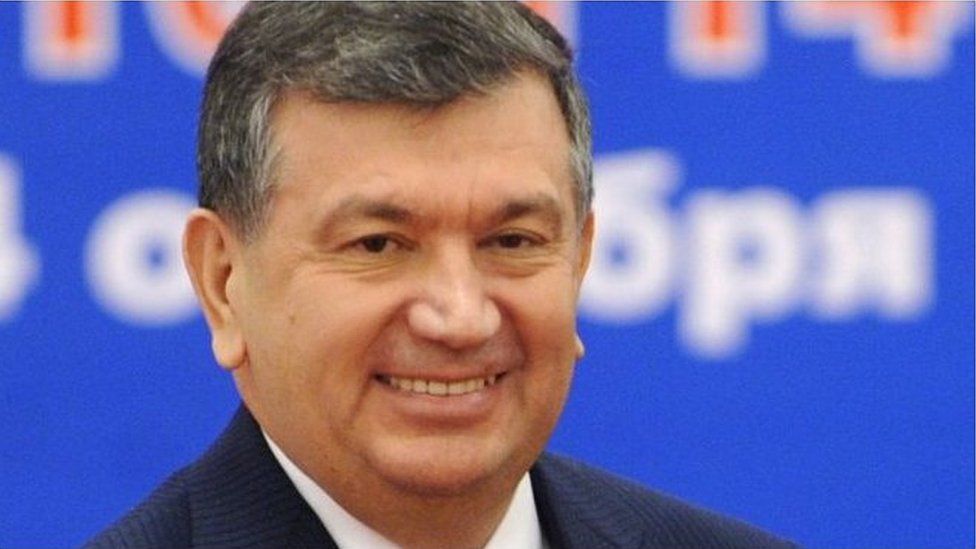
Shavkat Mirziyoyev served President Islam Karimov loyally as prime minister from 2003 to 2016, when he moved smoothly into the presidency via a deal between senior power-brokers.
He swiftly restored hitherto fraught relations with neighbouring Central Asian states, as well as Russia, China and the United States, and has sought to boost foreign investment in the moribund, state-run economy.
President Mirziyoyev has been more cautious on political reform, but managed to out-manoeuvre and replace most senior Karimov-era officials by early 2018.
MEDIA
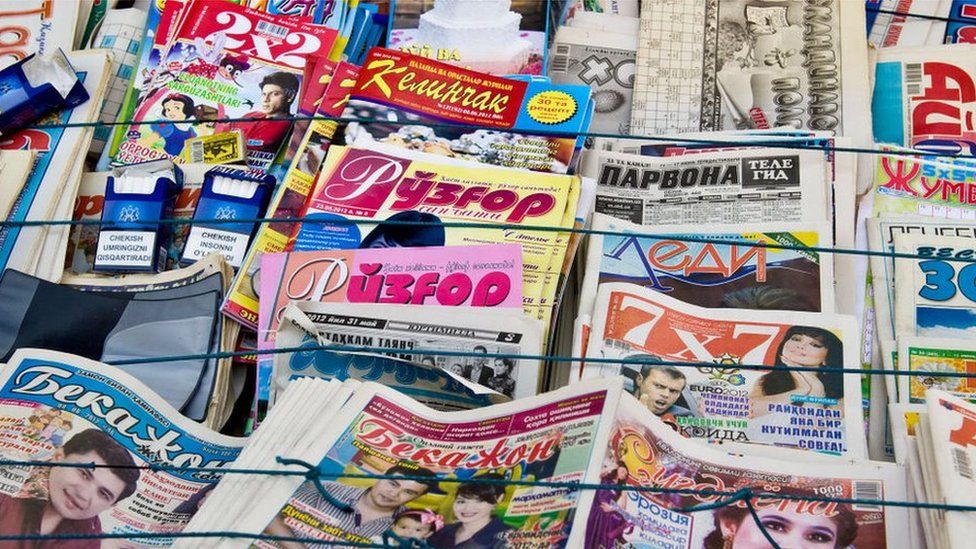
Uzbekistan is one of Central Asia’s biggest media markets. TV is the most popular medium. The government broadcaster operates the main national networks.
Most media outlets are linked directly or indirectly to the state.
There were 17.1 million internet users by July 2022, around 50% of the population (Internetworldstats.com). The authorities have steadily tightened their grip on the internet, says Reporters Without Borders.
TIMELINE
Some key dates in Uzbekistan’s history:
1st century BC – Central Asia, including present-day Uzbekistan, forms an important part of the overland Great Silk Road trade route linking China with the Middle East and imperial Rome.
13th-14th centuries – Central Asia is conquered by Genghis Khan and becomes part of the Mongol empire.
18th-20th centuries – Russia takes over vast areas of Central Asia, and the Soviet Union retains control of the region.
1989 – Islam Karimov becomes leader of the Uzbek Communist Party, and remains in power beyond independence in 1991.
2005 – Troops open fire on demonstrators in the city of Andijan, killing hundreds of people.
2016 – Islam Karimov dies in office. Successor Shavkat Mirziyoyev eases relations with neighbouring states, and promotes economic liberalisation.
